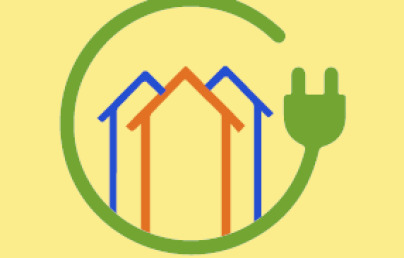INCREAS project
INCREAS project
INCREAS is a Pilot policy project co-funded by the European Union addressing Innovative and Creative Solutions for Cultural Heritage.
In the last decade Cultural Heritage moved more and more into the centre of attention of the European Commission, while the Culture Programme stimulated and invested in European initiatives like Capitals of Culture, the European Year of Cultural Heritage, the European Heritage Label and other. A series of reports like OMC and strategies like European Cultural Heritage Strategy for the 21st Century have been developed and issued, which by now give a rather clear picture where Cultural Europe plans to be heading in the years to come.
The actual challenge now is to act and put things suggested into practice. This pilot project is seen by the applicant as a perfect opportunity to continue several streams of action taken over the last five years – building upon EU projects like MODI-FY, PRO-Heritage, RCIA as well as the European Heritage Label awarded to the Union of Lublin 2014 and to the Imperial Palace Vienna 2016 – and creating a strong sector combining Cultural Heritage & CCIs to the benefit of both and to increase employment opportunities as well as fostering the general idea of sustainable Cultural Heritage of Europe.
Anticipated Outcomes
- Strengthened trans-national and cross-sectoral cooperation of cultural heritage, CCIs and formal/non-formal learning and skills development – linking already existing VET offers e.g. MODI-FY, PRO-Heritage, HerO.
- Better employability of cultural heritage professionals and closer contacts of cultural heritage education and skills development with the labour market and CCIs – e.g. development of Cultural Heritage & CCI sector, integration in European Skills Panorama, Pool of Experts (incl. traditional crafts), Pool of Apprentices, Pool of Volunteers.
- Stronger connections and networking of cultural heritage sectors with creative industries and "third places" such as creative hubs, maker spaces, fablabs, cultural centres, community centres or other – e.g. developing new hubs and enhancing existing like EHL Network, Imperial Palace Vienna and Lublin.
- Enhanced exchanges of experience, learning, skills development and practical testing and cooperation opportunities – formation of European Competence & Community Centres, Exchange Programme for professionals, apprentices and volunteers.
- Facilitation of peer learning and exchange of good practice through increased networking and exchange programme as well as study visits.
- Improvement of cultural heritage skills – Promoting existing VET like MODI-FY, PRO-Heritage and developing new streams e.g. Digital Heritage Assets Manager or others to be identified during INCREAS.
- Improve of statistics and data on the labour market for the cultural heritage sector through implementation of new sector for Cultural Heritage & CCIs, new job descriptions and involvement of labour market expert.
- Recommendations for further policy making at EU, national, regional and local level through thorough research, sophisticated workshops, conferences and relevant reports
- Developing a concept for European Centres of Excellence for Heritage Assets, called European Competence & Community Centres (EUComp-Centres), which serve as platform for (further) education of professionals, volunteers and interested public, as well as presentation tool for Cultural Heritage and CCIs to the same groups, plus linking them to the respective region and inhabitants.
Specific Objectives
- Using ESCO to enhance the profile of heritage professions and CCIs
- Creation of a Network of Experts and a community of practice
- To complement the EU Skills Panorama on CCIs
- Analysis of education and skills enhancement for cultural heritage
- Quality standards
- Innovation in heritage: mapping, testing prototyping
- Innovation and the life cycle of heritage professions
- The actors and spaces for innovation for heritage
- Peer learning / mobility
Start date: 2021

